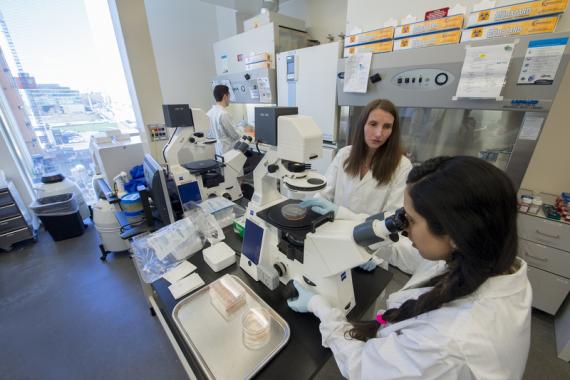The UW ADRC Research Education Component (REC) Investigator program provides Alzheimer’s-focused mentorship and UW ADRC Research Navigation support to junior investigators and to established investigators entering the Alzheimer’s disease and Alzheimer's disease-related dementia (AD/ADRD) research field. By providing access to a hand-selected multi-disciplinary mentorship team and concierge-style coordination in connecting with UW ADRC resources, the REC will support the development of self-sustaining research projects by investigators well-connected within the UW ADRC research community.
Now accepting applications for the 2025-2026 UW ADRC Research Education Component (REC) Trainee and Investigator cohorts! If you would like to apply to either, please submit a 1-page personal statement detailing your motivation for participating in the program, your NIH-style biosketch, and a statement of support from your present research mentor (for Trainees) or specific aims page(s) for funded, pending or upcoming ADRD-focused grants (for Investigators). Submit these to Molly Chinn (wamble@uw.edu) by Friday, August 15, 2025.
Three key benefits of participation in the UW ADRC REC Investigator program are:
- Ongoing input from a multi-disciplinary mentorship team, including established clinical and non-clinical ADRD researchers, to aid in the development, execution and completion of ADRD research projects.
- Access to the ADRC REC Research Navigator to support the investigator in connecting with ADRC resources (samples, data) and expertise (collaborators, consultants, etc.).
- For junior investigators seeking K and R-level funding for the first time, and for established investigators seeking ADRD funding for the first time, participation in the REC Investigator program provides a strong starting point mentorship and training plans, and for demonstrating active connection with the institutional Alzheimer’s-related scientific environment.
Participants
The UW ADRC REC Investigator program was designed to support senior postdoctoral fellows and junior faculty members working through transitions to independent research funding, and established investigators entering the AD/ADRD field for the first time.
Elements
- Mentorship Teams REC Investigators will be matched by the REC Advisory Committee with a mentorship team matched to the Investigator’s research subject and consisting of one clinician, one established ADRD researcher, and the REC Research Navigator. Meeting with the Investigator three times per year, this team will provide input on project design, data interpretation, development of AD/ADRD-focused grants, and establishing productive collaborations and connections within the UW ADRC.
- UW ADRC Research Navigator Support REC Investigators will have access to the support of the REC Research Navigator, who will help the Investigator make connections within the ADRC community, guide communications between REC Investigators, their trainees and staff, and the individuals who serve as gatekeepers to resources and services in other ADRC cores.
- REC Events REC Investigators will be provided access to REC-sponsored research and training events.
- AD@UW: Broad-based training on the presentation and clinical course of AD/ADRD, as well as research approaches used in their study. Small-group based sessions will be facilitated by UW ADRC subject matter experts, who will also provide an ‘insider’s guide’ to the use of ADRC samples, data and resources.
- UW ADRC Research Symposium: REC Investigators will be invited to participate in the annual UW ADRC Research Symposium, which includes a poster session, investigator and trainee talks, and networking opportunities.
- ADRD Open Neuroscience Workshop Webpage Coming Soon: REC Investigators will be granted priority in registering for the annual UW ADRC Open Neuroscience Workshop held each spring beginning in 2021. During this two-day immersive workshop, participants will receive guided hands-on group-based introduction to publicly available datasets, their origins and structures, user interfaces, visualization and statistical tools necessary to leveraging these resources in participants’ own research projects. These workshops will be supported by expert staff from partnering open neuroscience organizations such as SAGE Bionetworks.


